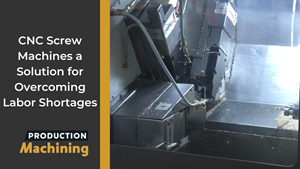Kata Practice for Scientific-Thinking Skill and Mindset
Toyota Kata begins with this assumption and asks: what are the practice routines that will help managers outside Toyota develop the necessary skills and mindset to lead fundamental change in their organizations?
Join best-selling author Mike Rother and Lean Champion Dan Vermeesch of Micron Manufacturing Co. at PMPA’s April National Technical Conference. Their topic, the Toyota Kata, is a practice to help any organization increase its capability to pursue challenging goals.
The field of Lean has evolved significantly in recent years, and many organizations are changing the way they think about Lean. Historically, a company’s Lean initiative has been the purview of improvement experts, traveling throughout the company and leading projects to fix struggling processes. After more than two decades of Lean initiatives in the manufacturing industry, the results have been somewhat underwhelming. Typically, a company’s Lean initiative generates impressive initial gains, but with time, then the improvements fade away and the organization does not gain a long-term competitive advantage.
In contrast, at Toyota it is the management hierarchy that is responsible for improvement, with only a small number of experts traveling to coach leaders at all levels.
Toyota Kata begins with this assumption and asks: what are the practice routines that will help managers
outside Toyota develop the necessary skills and mindset to lead fundamental change in their organizations? The core mindset is well captured in the scientific method often associated with Dr. Edwards Deming—the Plan-Do-Check-Action cycle. The Plan starts with an understanding of the gap between where we are and where we want to be, ideas for getting us closer to our vision are like scientific hypotheses that must be tested (Do), and through Checking what happened, we have an
opportunity to learn and define further Action.
Kata are routines that a learner practices to develop skill, usually under the corrective guidance of an experienced coach. The well-known movie, “The Karate Kid,” contains famous examples: “Wax on, wax off. Paint the fence.”
Mr. Miyagi guided Daniel through practice of these simple routines in order to help his student learn karate. Mr. Miyagi’s backyard improved dramatically as Daniel practiced his kata, but home improvement was not the point. Making Daniel into an expert fence painter or master car washer was not the point, either. These kata were growing in Daniel’s subconscious neural pathways and muscle memory enabling him to better defend himself.
Similarly, the Improvement Kata is a routine to practice, a means to an end, not a tool to be mastered in itself. And although the learner practicing the Improvement Kata is focused on pursuing a challenging objective, reaching that objective is actually not the endpoint. It is the beginning. Progress toward the objective is an expected outcome, but a coach is present to modify the practice as necessary in pursuit of the true purpose: helping the learner grow a scientific mindset that enables them to comfortably and competently face increasingly difficult challenges.
Toyota Kata explicitly puts the process owner in the role of scientific problem solver, and acknowledges that they may initially lack the ability to be successful. Toyota Kata is about cultivating the requisite skills and mindset through deliberate practice.
In a sense, Toyota Kata reverses earlier approaches to Lean, a field that contains countless books, articles and courses describing what Lean thinking is or what a Lean process looks like. Such resources implicitly leave an organization implementing Lean to figure out how to achieve and sustain these objectives, and history is demonstrating that existing organizational cultures are largely in conflict with those principles and concepts. Experience suggests that discussion and education, tools and principles, are insufficient to drive sustainable change.
Instead, Toyota Kata focuses on how to develop the desired culture, offering specific practice routines to help an organization start cultivating within employees the skills and mindset to sustainably pursue the traditional objectives of Lean, or any other objective for that matter.
There is a playbook for the meta skills that help you reach your own challenging goals, and it’s the
Improvement Kata.
Tyson Ortiz is global lean champion at Abiomed Management Consulting in Boston, Massachusetts, and sits on the Family Advisory Council at Boston Children’s Hospital.
Dr. Jeffrey Liker is professor of industrial and operations engineering at the University of Michigan and author of the international best-seller, “The Toyota Way.”
Related Content
Applying a Healthy Approach to Employee Investment
Service Center Metals’ on-site health center offers its employees and their families free same-day health care and, in return, the employer is gaining many benefits including a healthier workforce and attracting potential employees.
Read MoreThe Value of Aligning Efforts to Promote Manufacturing Careers
Successfully building the next generation of manufacturers requires a team effort between employers, educators and parents. Each of these three groups has a tremendous impact on young people’s career decisions. Without the support of all three, we are unlikely to bridge the skilled labor shortage that threatens the future growth of our industry.
Read MoreEmerging Leader's Problem-Solving Skills Cool Down a Hot Project
This 2023 Emerging Leader developed a product in response to a call for help from Yamaha that was a huge hit in the snowmobile industry when it hit the market in 2010. In fact, it is now a common product that most snowmobile OEMs have implemented.
Read MoreVideo Tech Brief: CNC Screw Machines a Solution for Overcoming Labor Shortages
CNC screw machines can exceed job shop productivity and enable manufacturers to overcome perpetual employment gaps.
Read MoreRead Next
A Tooling Workshop Worth a Visit
Marubeni Citizen-Cincom’s tooling and accessory workshop offers a chance to learn more about ancillary devices that can boost machining efficiency and capability.
Read MoreDo You Have Single Points of Failure?
Plans need to be in place before a catastrophic event occurs.
Read More5 Aspects of PMTS I Appreciate
The three-day edition of the 2025 Precision Machining Technology Show kicks off at the start of April. I’ll be there, and here are some reasons why.
Read More





















